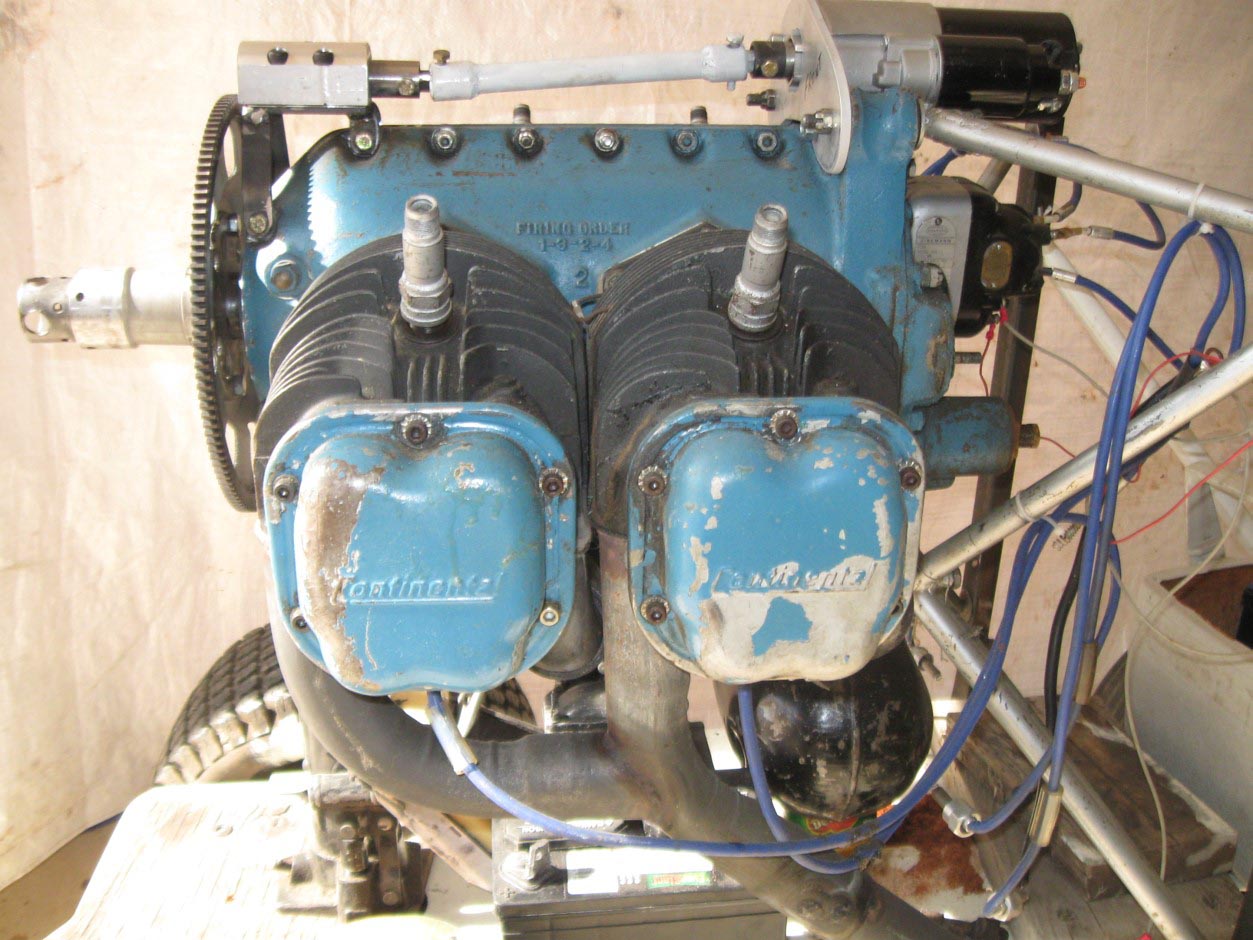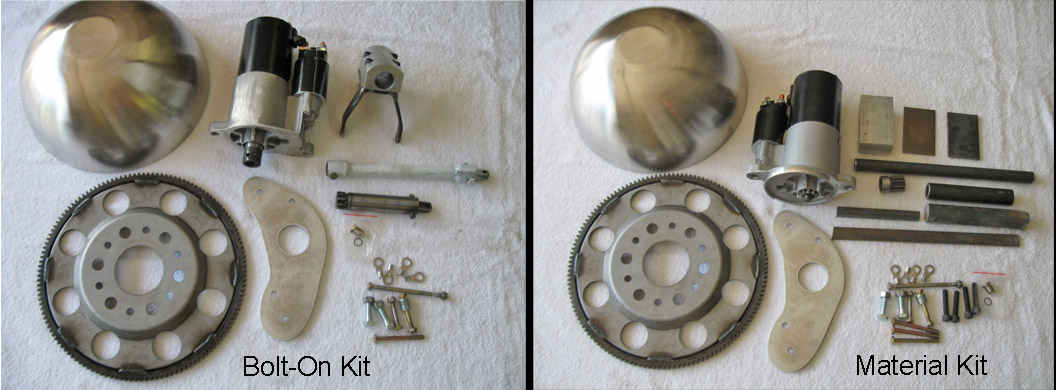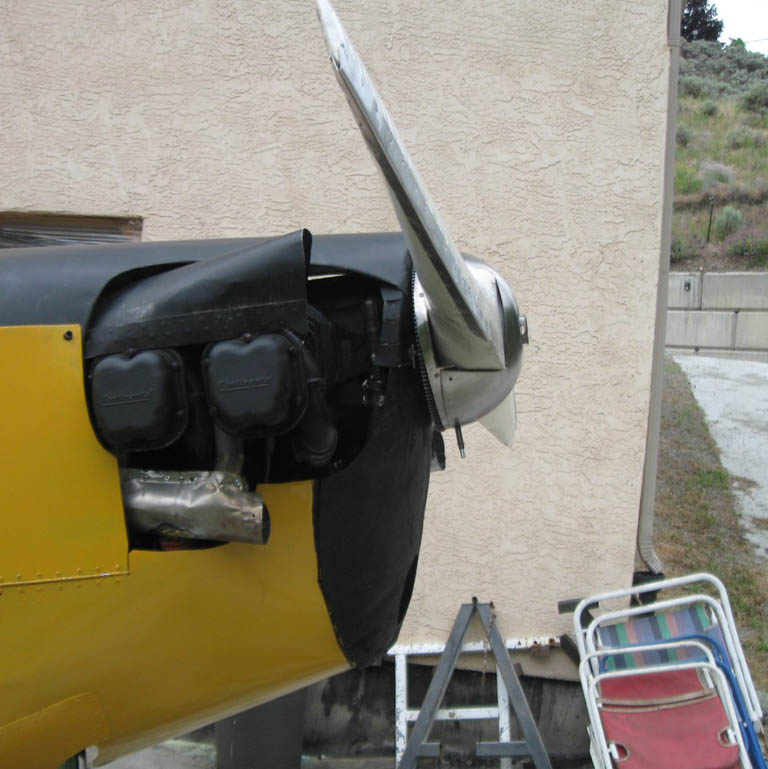The A65 is the perfect engine for most of the small, traditional homebuilts. Continental made thousands of them over a ~20 year period. They went into the most common airplanes of the post-WWII period...the Cubs, the Champs, the Taylorcrafts, the Luscombes.
Most of these airplane were trainers, hence students back then had to learn to hand-prop. And if you went to your local FBO, the line boy would be quite happy to spin your prop for you after you bought your eight gallons of 80 octane.
Things are wildly different, now. People have trained on starter-equipped airplanes ever since the 60s. NO ONE really wants to hand-prop these days.
Yet all those A65 engines are out there. Perfect powerplants for Fly Babies, Baby Aces, Pietenpols, Pober Pixies, Boredom Fighters, etc... a TON of great small airplanes that use the A65. But owners have to hand prop. Tail Hooks help, but when all is said and done, someone has to stand in front of that airplane and twirl the prop.

But....but... I've been flying "Moonraker" now, for about twenty-five years. 'Raker has a starter. I've gotten used to it, and, being twenty-five years older, my body isn't quite as supple as it was back then. I would not be real happy if I had to transition back to a hand-propped airplane.
A lot of folks won't even consider it, which excludes them from a ton of great little homebuilt aircraft, which can be bought for $10,000 or less.
Enter Albert Piccioni
So when I got an email from Mr. Albert Piccioni of
Summerland, British Columbia, I was intrigued. Mr.
Piccioni had developed an add-on starter system for A65
engines, and was offering it for sale.

You can see the system mounted atop this engine. A small
electric motor bolts to the front of engine's mounting flange,
a ring gear is added to the propeller flange, and a shaft with
two universal joints and a Bendix gear connects the two.
It doesn't need a generator... Mr. Piccioni reports getting
over 20 starts from a small battery previously installed on a
mobility scooter (it's visible below the engine).
Install the battery where convenient, and slap a charger on it
occasionally.

He reports that the system, without battery, weighs 14
pounds, which is about what a conventional starter weighs.
Ordering
You can contact Mr. Piccioni at eightyniner@shaw.ca.
He's offering the kit in two variations, as a bolt-on kit or
as a material kit. Both kits come with all the items
shown in the figure below. However, the material kit is
rather raw; it will require machining, lathe work, drilling,
and some welding to complete. All this is complete with
the bolt-on kit. The photo below illustrates the
differences. On the bolt-on kit, the pinion bearing
assembly is completed, including support structure, the motor
has been modified, and the drive shaft is complete.

Price of Bolt-on kit is $1435.00 Canadian,
about $1100 US at this writing. The bare bones kit is
$925.00 Canadian, works out to about $700 US. For either
kit, you'll need to supply your own battery, switch, and
wiring. Small motorcycle-type batteries would be
adequate. The starter motor is included with both
kits... for the Bolt-On kit, the minor modifications needed to
it are already performed.
A Few Notes
- The pinion gear on top of the front of the engine will
probably require cowling modifications. A cutout with
a fiberglass "bump" added to the top of the nose cowl will
be necessary as a minimum. The cowling nosebowl may
need to be expanded to fit the ring gear. The
stainless steel spinner (included) adds some streamlining,
but the "diameter" of the front of the engine will be
larger. The purchaser will need to cut the openings in
the spinner to fit their propeller.

- There is no TSO for this system, so it cannot be installed on Standard Category aircraft in the US.It's perfectly legal on a homebuilt. I suspect that, in Canada, it's OK under the "owner maintenance" category.
- Finally, a little disclaimer: I'm helping Mr.
Piccioni get the word out about his system, but am not
involved otherwise. Please contact him at eightyniner@shaw.ca
if you have any questions.